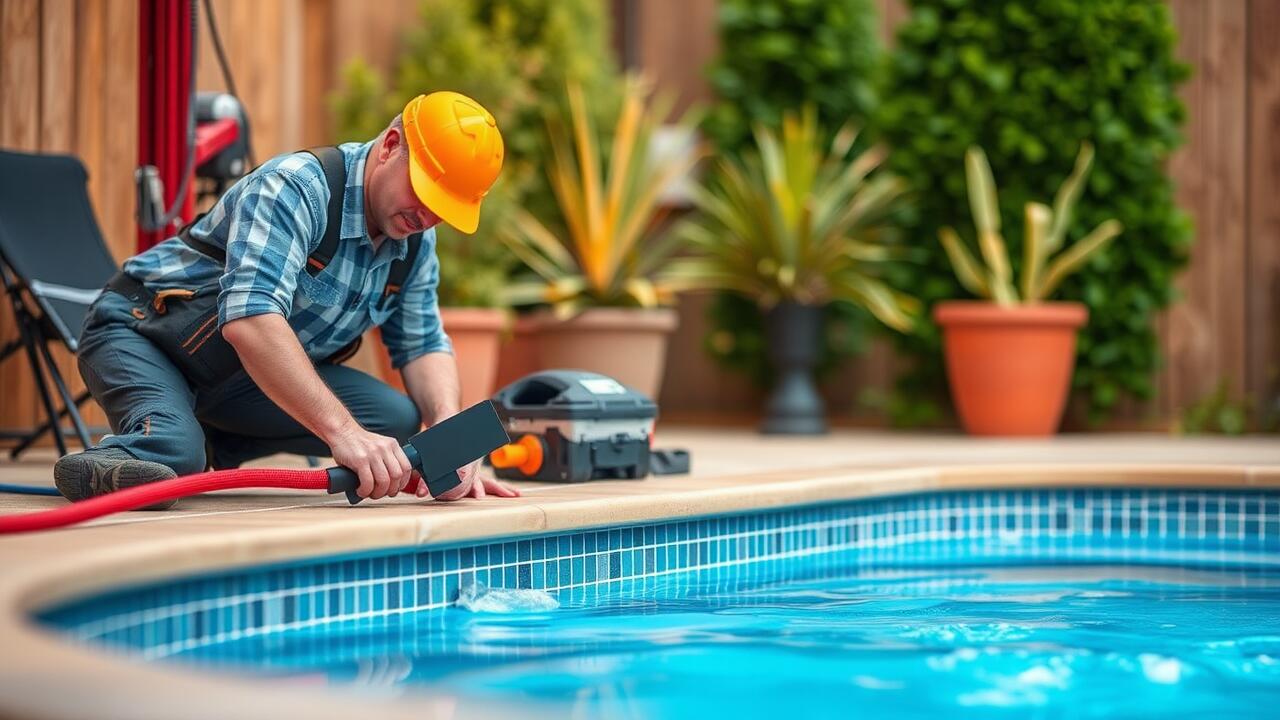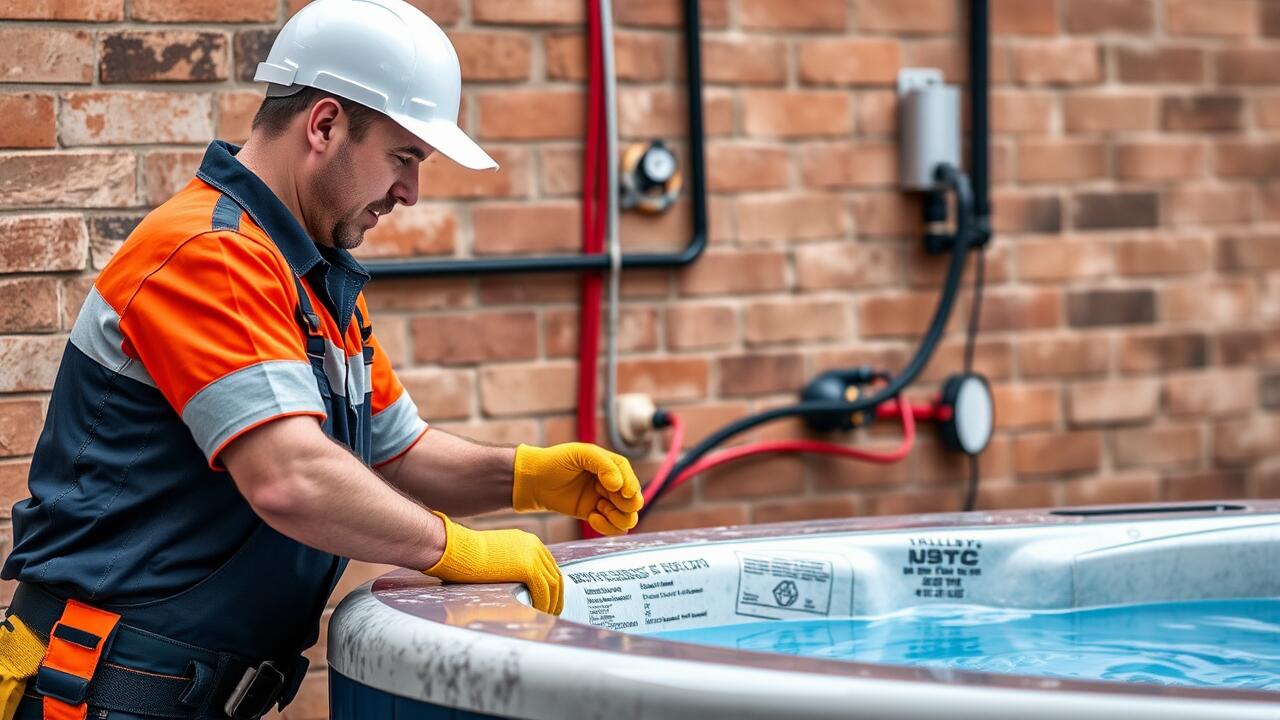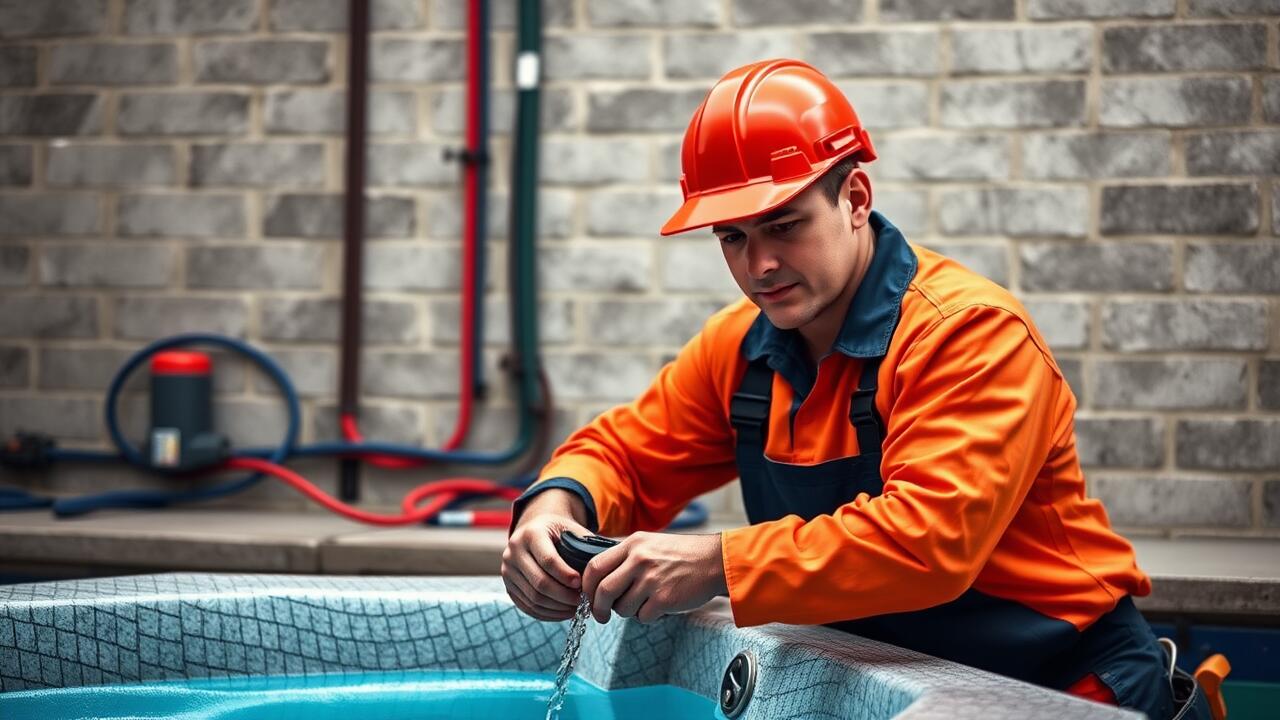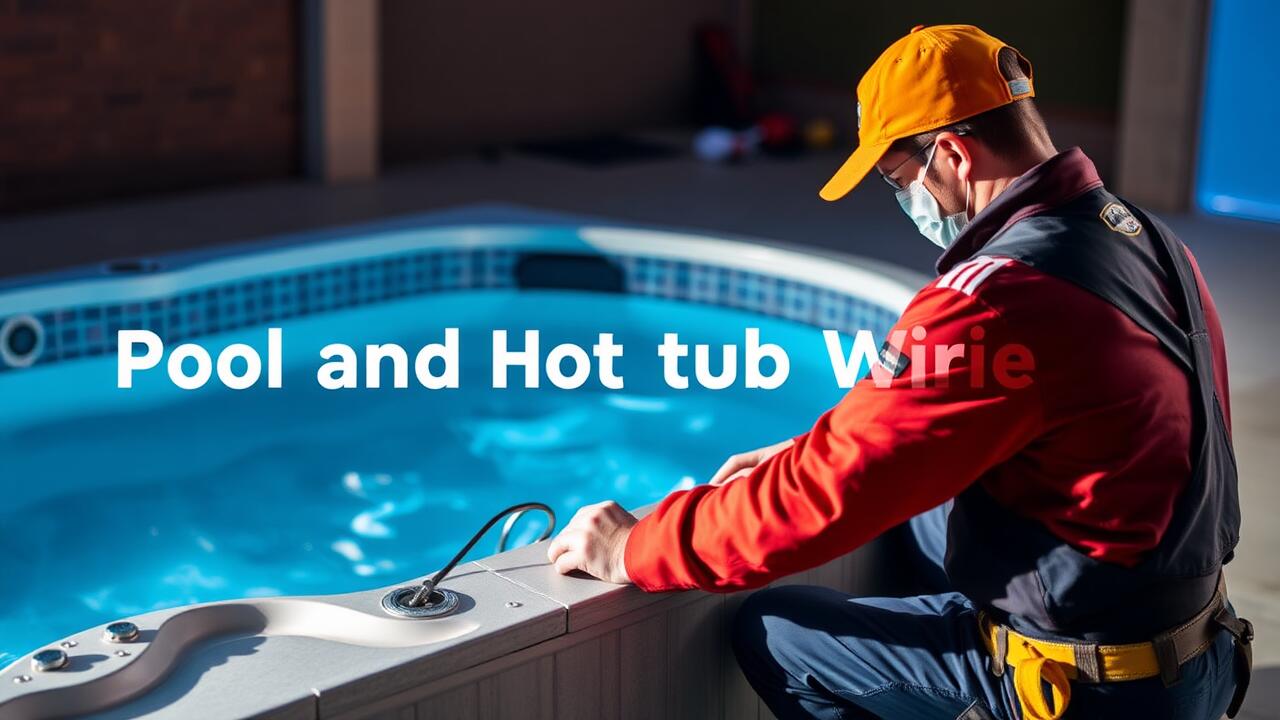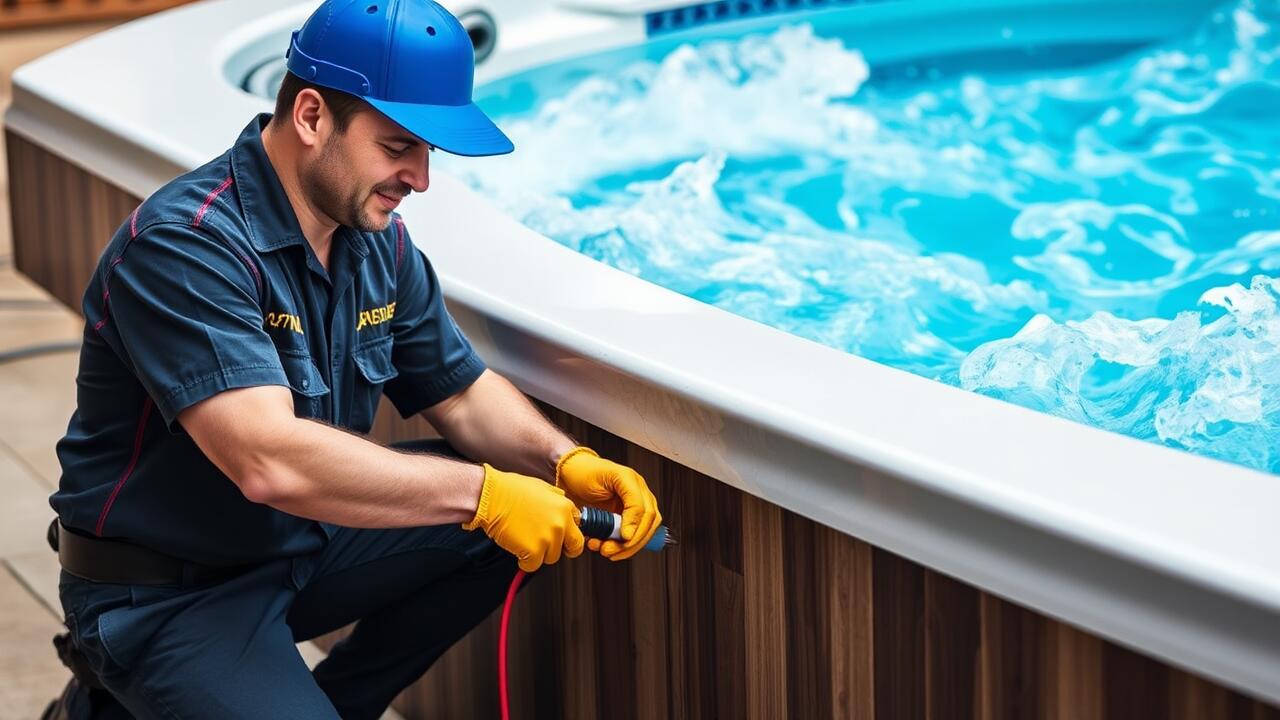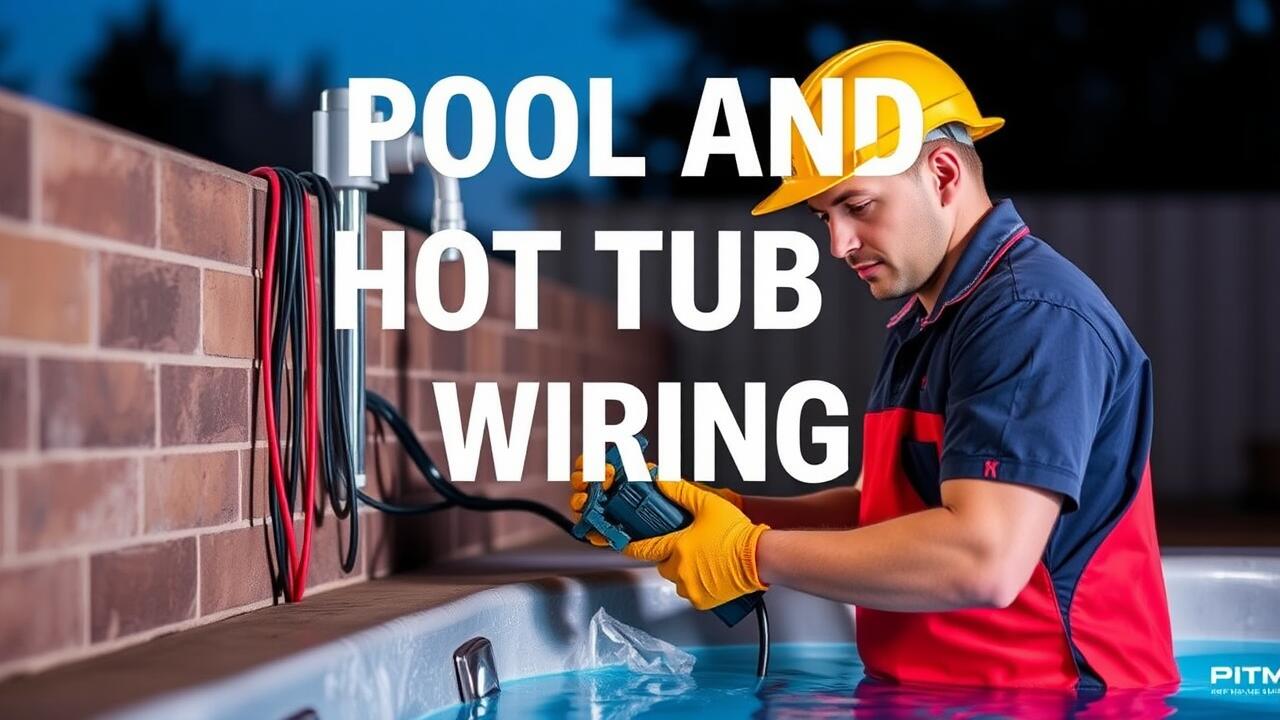
Installation Process for Hot Tub Wiring
Installing wiring for a hot tub involves several critical steps to ensure both functionality and safety. The process begins with selecting the appropriate electrical supply, which should be adequate for the hot tub’s power requirements. It is vital to consult local building codes and regulations before starting any installation, as these guidelines dictate the specific electrical specifications for hot tubs. Proper grounding and bonding of all electrical components are essential for reducing the risk of shock or fire.
When it comes to Pool and Hot Tub Wiring in Third Ward, Houston, using a qualified electrician is highly recommended. They will ensure that the installation adheres to safety standards and local regulations. The wiring should be correctly routed and protected, often requiring conduit to shield it from moisture and physical damage. Ensuring that all connections are secure and weatherproof will provide peace of mind and longevity for your hot tub's electrical system.
Key Steps for Proper Conduit Setup
When setting up conduit for hot tub wiring, it is essential to start by selecting the appropriate type and size of conduit based on local electrical codes and the specific needs of the installation. Rigid PVC conduit is often recommended due to its resistance to moisture and chemicals commonly found around pools and hot tubs. Ensure that all fittings and couplings are secure to prevent water intrusion, which could lead to electrical hazards.
After the conduit is installed, run the appropriate gauge wiring through it, making sure to follow the manufacturer's guidelines and local regulations. Label each wire clearly to avoid confusion during connection. It's also advisable to leave a little extra wire length at the ends for easier connections later. Properly grounded wiring is crucial to safety, particularly in areas prone to moisture. Regular maintenance and inspection of the conduit and wiring ensure the long-term safety and functionality of the hot tub system. Choosing an expert for Pool and Hot Tub Wiring in Sharpstown, Houston, can help guarantee compliance with safety standards.
Potential Risks of Not Using Conduit
Not using conduit for hot tub wiring poses several risks that can compromise safety and functionality. Without proper protection, the wiring is exposed to environmental hazards such as moisture, sunlight, and physical impacts. These factors can lead to deterioration over time, resulting in shorts or even fire hazards. In areas where water is frequently present, such as around a hot tub, the risks associated with unprotected wiring increase significantly.
Additionally, failing to use conduit may violate local electrical codes, leading to penalties or problematic insurance claims. Homeowners relying on subpar wiring practices might face higher repair costs if electrical issues arise. For residents in need of safe and compliant installations, seeking professional help for Pool and Hot Tub Wiring in Westchase, Houston, ensures that proper methods are used. Ultimately, protecting hot tub wiring with conduit is a critical step towards enhancing safety and compliance.
Common Electrical Hazards to Avoid
Electrical hazards associated with hot tub installations can lead to serious injury or even fatality. Faulty connections can result from poor workmanship or the use of substandard materials. Wet environments, such as those around pools and hot tubs, increase the risk of short circuits. It is essential to recognize the importance of using appropriate wiring methods and materials to ensure safety in such areas.
Inadequate grounding is another critical concern when dealing with hot tub wiring. Without proper grounding, the risk of electric shock increases significantly. Additionally, overloading circuits due to unfitted or improvised equipment can pose a fire hazard. Professionals experienced in Pool and Hot Tub Wiring in Montrose, Houston, understand how to mitigate these risks by adhering to established standards and codes to guarantee both safety and reliability.
Best Practices for Hot Tub Electrical Setup
When setting up the electrical connections for a hot tub, following strict guidelines ensures safety and compliance. An important aspect is using appropriately rated materials that can withstand exposure to moisture. This includes wiring, switches, and circuit breakers specifically designed for wet locations. Engaging a licensed electrician familiar with local codes can help with navigating the regulations. Be sure to double-check that all connections are secure and properly insulated to reduce any potential hazards.
Proper planning also entails locating the hot tub at a safe distance from the home and ensuring that all outlets are equipped with GFCI protection. These precautions minimize risks associated with electrical malfunctions. If you're in the area, consider consulting professionals who specialize in Pool and Hot Tub Wiring in Westchase, Houston. They bring expertise in both the installation and maintenance of electrical systems, ensuring that the setup not only meets safety standards but also operates efficiently.
Ensuring Compliance and Safety
Proper compliance with local electrical codes is crucial when installing hot tub wiring. Regulations exist to ensure safety and prevent electrical hazards. Utilizing conduit for wiring is often mandated in these codes. Adhering to these guidelines minimizes risks associated with moisture and damage, which are common in hot tub environments. Consulting with a licensed electrician can help ensure that all wiring is installed correctly and meets the necessary standards.
In areas like Clear Lake City, Houston, homeowners should be particularly vigilant about following regulations specific to pool and hot tub installations. Local guidelines can vary, and it’s important to stay informed about any updates or changes. Performing routine checks on wiring and connections is a good practice. It not only enhances safety but also extends the lifespan of the wiring system. Prioritizing compliance fosters a secure atmosphere for enjoying your hot tub.
FAQS
Does hot tub wiring need to be in conduit?
Yes, hot tub wiring typically needs to be installed in conduit to protect the electrical cables from moisture, physical damage, and to ensure compliance with local electrical codes.
What type of conduit is recommended for hot tub wiring?
Rigid PVC conduit or flexible non-metallic conduit is often recommended for hot tub wiring, as they provide adequate protection against the elements and are suitable for outdoor use.
Are there any exceptions to using conduit for hot tub wiring?
While most installations require conduit, there may be specific instances allowed by local codes where conduit is not necessary, such as when using listed wet-rated cables in certain protected areas. Always check local regulations.
What are the risks of not using conduit for hot tub wiring?
Not using conduit can expose the wiring to moisture, physical damage, and pests, which can lead to electrical shorts, malfunction of the hot tub, or even electric shock hazards.
How can I ensure my hot tub wiring is compliant with safety codes?
To ensure compliance, consult with a licensed electrician familiar with local codes, use appropriate materials, follow installation guidelines, and consider having the installation inspected by the local electrical authority.
